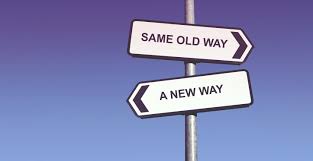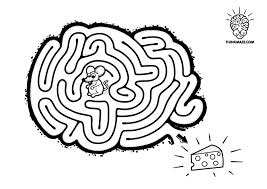
Categories: General
Date: Jun 1, 2014
Title: Breaking Bad Habits and Developing Your Healthy Cycling Habit
 So you have told yourself that you are going to start cycling, but you just can't seem to get motivated to pull yourself off that couch, and get out there.
So you have told yourself that you are going to start cycling, but you just can't seem to get motivated to pull yourself off that couch, and get out there.
Well, there just may be help for you yet. You just need to create a new habit....
To explain this, let’s outline a simple scenario. You come home after a long day of work and you are starving, so you have your well deserved dinner, and sit down in your favorite chair to relax for a few minutes. You know you said you would go out for a bike ride, but what you really need is just a quick little nap to recharge. You wake up from your nap, and let’s just say the moment has passed, so you flick on the TV and relax. Wow, time flies, bedtime already? Now you feel disappointed with your actions and frustrated that you just can’t seem to make the change in your lifestyle. This may not be everyone’s problem but if you look at what you are doing now instead of cycling you can fix it. You are placing something at a higher priority than cycling. Be it relaxing, or attending to another thing you feel is responsible for, you have created a habit to do that other activity instead of making a positive lifestyle change.
You’d be surprised in how many people face the same inability to create change in their lives. So how do we change our lives and create healthy habits, like taking up cycling? The first step is to understand that we all have habitual lifestyles and to change it you need to understand what habits you have in order to impact them.
According to researcher Wendy Wood 40-45% of the decisions in our daily routines are actually habits. So much for living our lives consciously with that level of decisions making happening while we are sleep walking. Yes you heard that right; while you perform the actual habitual routine, your brain activity drops to the level equivalent of a sleep like state. Changing the habit will not happen unless you can find the trigger that sets you into the habit.
A research study performed by Dr Anne Graybiel’s identifies three stages in a habitual process.
I. The cue: This is what triggers you into the habit. In this stage of the habit, there is strong brain activity which means here is where you need to change your habit.
From the example above, you may think that the chair is the trigger, but in some cases it could actually be the act of eating dinner, or even changing before dinner. Every person is different; it’s a matter of figuring out what your trigger is. Make the change where you still feel you are in power of your actions. I’m not suggesting you skip dinner, but maybe a light snack and bike ride before dinner is a better option if hitting the couch is your after dinner habit. What’s your trigger?
II. The routine: This is where brain activity drops down into a sleep like state. There is no thought process happening here, you are simply doing the routine.
I don’t think I need to elaborate here. You are now just doing the act of sitting or eating, cleaning, or working. You are not in control anymore; it’s a struggle to change even if you recognize you need to. I repeat, find your trigger to stop the routine.
III. Reward: In this state your brain peeks again. You are back in power again.

It is very important to teach yourself that you enjoy cycling. Even if you feel you enjoy it in your heart and you have fun when you do it, there is a reason you are sitting down after dinner instead of cycling. You need to create a more powerful feeling of reward after cycling until a strong habit is formed.
Let’s elaborate on what I mean by reward. Give yourself a single self satisfying piece of chocolate or something you feel is totally decadent or rewarding. Something unique, that you can make special. I don’t mean you stop off at the ice cream store each time you cycle; just find something that won’t turn into a new bad habit. Overindulgence is not the point, think reward. Don’t miss your reward or you will never bend that bad habit into a good habit.
Habits take time to form so be consistent. Unfortunately there is no magic number like some sites may suggest. Every person is different. Some people may take half a month; others may take half a year. It just depends on you as an individual. There is no one time fits all.
So you see creating a good habit is pretty simple if you recognize your undesirable habit. All you need to do is:
-Laurel Jorundson